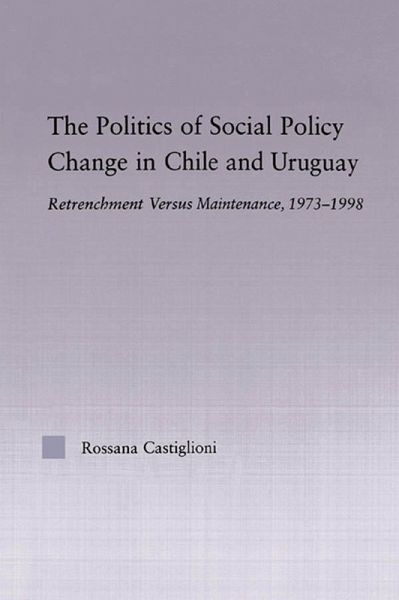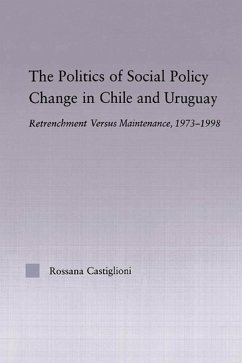
The Politics of Social Policy Change in Chile and Uruguay (eBook, ePUB)
Retrenchment versus Maintenance, 1973-1998
Versandkostenfrei!
Sofort per Download lieferbar
45,95 €
inkl. MwSt.
Weitere Ausgaben:

PAYBACK Punkte
23 °P sammeln!
This work explains the causes of social policy reform in Chile and Uruguay in the areas of health care, pensions and education. Until the 1970s, Chile and Uruguay shared striking similarities.
Dieser Download kann aus rechtlichen Gründen nur mit Rechnungsadresse in A, B, BG, CY, CZ, D, DK, EW, E, FIN, F, GR, HR, H, IRL, I, LT, L, LR, M, NL, PL, P, R, S, SLO, SK ausgeliefert werden.













